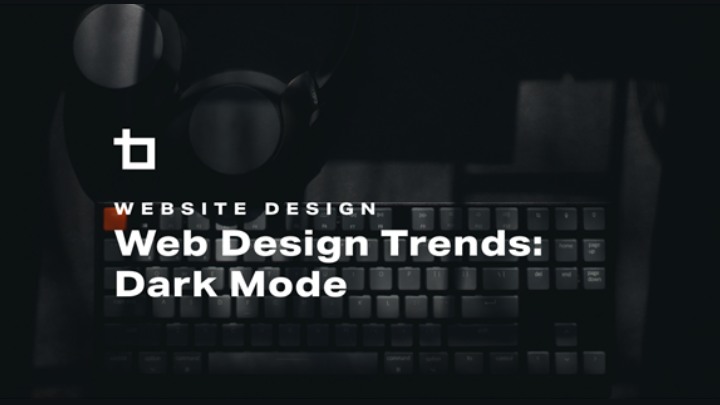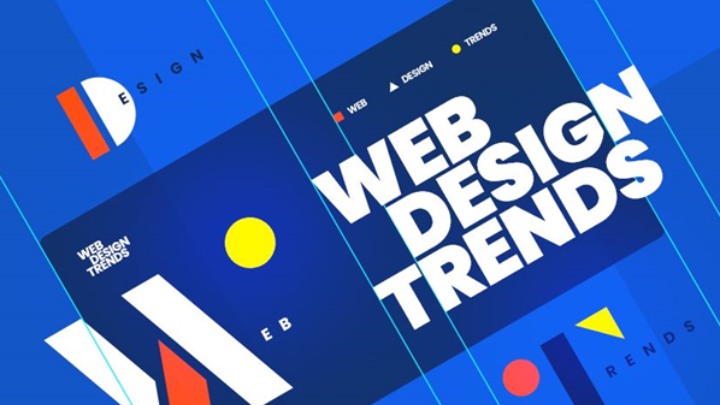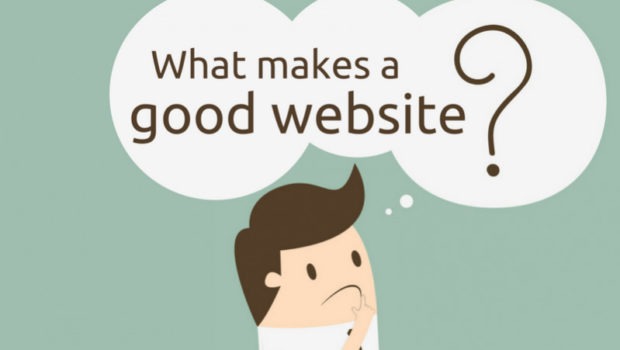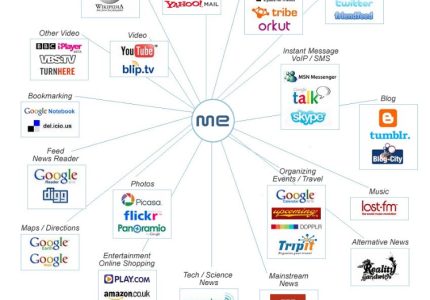Overview of AI Website Design Generators
AI website design generators are innovative tools that leverage artificial intelligence to streamline and enhance the process of creating websites. These platforms enable users to generate professional and visually appealing websites quickly, often with minimal effort and technical knowledge. By utilizing advanced algorithms and machine learning, AI website design generators offer customizable templates, automatic layout adjustments, and intelligent content placement, making website development more accessible and efficient for individuals and businesses alike.
Definition and Purpose
An AI website design generator is a tool that uses artificial intelligence technology to create website layouts and designs automatically or with minimal user input. These generators analyze user preferences, industry standards, and design trends to produce visually appealing and functional websites efficiently. The primary purpose of AI website design generators is to simplify the web development process, making it accessible to individuals and businesses who may lack extensive coding or design experience. By streamlining the creation process, these tools enable users to rapidly develop customized websites that cater to their specific needs, saving time and resources while maintaining professional-quality results.
Key Features and Capabilities
AI website design generators are advanced tools that leverage artificial intelligence to streamline and simplify the process of creating professional and visually appealing websites. These platforms utilize machine learning algorithms to understand user preferences, industry standards, and aesthetic trends to produce customized website layouts efficiently.

Key features of AI website design generators include automated layout creation, customizable templates, and intelligent content placement. Many generate fully responsive designs that adapt seamlessly to various devices, enhancing user experience. They often provide options for integrating multimedia, such as images and videos, along with built-in SEO optimization capabilities to improve website visibility.
Capabilities of these generators extend to rapid prototyping, reducing the time and technical skills required to develop a website from scratch. Advanced generators can also learn from user inputs and feedback to improve design suggestions over time. Additionally, they often include tools for editing and fine-tuning the generated designs, giving users a balance between automation and creative control. Overall, AI website design generators are transforming web development into a more accessible and efficient process for individuals and businesses alike.
Benefits of Using AI Website Design Generators
AI website design generators offer numerous advantages that can transform the way individuals and businesses create online platforms. By utilizing advanced algorithms and machine learning, these tools enable users to craft visually appealing, functional websites quickly and efficiently. They eliminate the need for extensive coding knowledge, reduce design time, and provide innovative customization options, making website development more accessible and cost-effective for everyone.
Time Efficiency and Speed
AI website design generators offer significant advantages in terms of time efficiency and speed, transforming the way websites are created. These tools automate many design processes, enabling users to generate professional-looking websites in a fraction of the time it would take manually. By quickly providing layout options, color schemes, and content structures, AI-powered platforms allow for rapid prototyping and immediate adjustments. This streamlining reduces development cycles, accelerates project completion, and allows designers and developers to focus more on refining functionality and content rather than initial design creation. Overall, AI website design generators enhance productivity and enable faster deployment of visually appealing and functional websites.
Cost-Effectiveness
AI website design generators offer significant cost-effectiveness by reducing the need for extensive human resources and minimizing expensive design and development processes. These tools streamline the creation process, allowing businesses to produce professional-quality websites quickly without hiring large teams of designers and developers.
By automating tasks such as layout generation, image selection, and content placement, AI website design generators help lower overall project costs. This affordability makes it accessible for startups and small businesses with limited budgets to establish a strong online presence.
Furthermore, these generators enable rapid prototyping and real-time adjustments, saving time and money that might otherwise be spent on iterative manual redesigns. Ultimately, using AI-driven tools enhances cost efficiency while delivering high-quality, customized websites tailored to specific needs.
Customization and Flexibility
AI website design generators offer numerous benefits that streamline the process of creating modern, attractive, and functional websites. These tools leverage artificial intelligence to assist users in developing websites quickly and efficiently, without the need for extensive coding knowledge.
One of the key advantages is the high level of customization and flexibility they provide. Users can easily tailor website layouts, color schemes, fonts, and content arrangements to match their unique branding and preferences. This adaptability ensures that each website feels personalized, aligning with specific business or personal goals.
- Rapid Website Creation: AI generators can produce professional-looking websites in minutes, saving time and effort.
- Design Consistency: Built-in AI algorithms maintain a cohesive aesthetic throughout the site, ensuring visual harmony.
- Easy Modifications: Users can make real-time adjustments to design elements, fostering creative experimentation.
- Responsive Designs: Generated websites are typically optimized for various devices, enhancing user experience across desktops, tablets, and smartphones.
- Cost-Effective Solution: Automating design processes reduces the need for hiring professional designers, lowering overall costs.
User-Friendly Interface
AI website design generators offer numerous benefits, making website creation more accessible and efficient for users of all skill levels. These tools automate complex design processes, allowing users to generate professional-quality websites quickly without extensive technical knowledge. The integration of advanced AI algorithms ensures that designs are visually appealing, optimized for user experience, and responsive across various devices.
One significant advantage is the user-friendly interface provided by AI website design generators. These platforms typically feature intuitive drag-and-drop functionalities, guided prompts, and customizable templates that streamline the entire design process. This ease of use empowers entrepreneurs, small business owners, and individuals to create, modify, and update their websites with minimal effort, saving time and resources.
Additionally, AI-based tools can automatically suggest design improvements, optimize layouts, and enhance content placement, leading to a more polished and effective website. These features reduce the need for hiring professional designers, making website development more affordable and accessible. Overall, AI website design generators with user-friendly interfaces democratize web development, enabling anyone to establish a strong online presence effortlessly.
Types of AI Website Design Generators
AI website design generators are innovative tools that leverage artificial intelligence to create customized, professional websites quickly and easily. These generators cater to a wide range of needs, from simple personal pages to complex business sites, offering users an effortless way to build and customize their online presence. Understanding the different types of AI website design generators can help users choose the right solutions for their specific projects and goals.
Template-Based Generators
AI website design generators are innovative tools that utilize artificial intelligence to assist users in creating websites with minimal effort. These generators leverage advanced algorithms to automate various aspects of design, making it accessible for non-technical users. One prominent category within these tools is template-based generators. These generators provide a wide selection of pre-designed templates that users can customize to fit their specific needs. They usually feature user-friendly interfaces, enabling modifications to layouts, color schemes, and content effortlessly. Template-based generators streamline the website creation process, allowing for quick deployment while maintaining professional aesthetics. Overall, these AI-driven solutions simplify web design, making it easier for individuals and businesses to establish an engaging online presence.
Fully Automated Design Tools
AI website design generators are innovative tools that utilize artificial intelligence to create websites automatically or with minimal user input. These generators can streamline the web development process by offering intuitive interfaces and smart algorithms that understand user preferences and content requirements. Fully automated design tools take this a step further by generating complete website layouts, visual elements, and even content suggestions without requiring manual coding or design expertise.
Among the types of AI website design generators, templated-based tools are popular; they use pre-designed templates that AI customizes according to user inputs, making the creation process faster. Conversely, generative models leverage machine learning to produce entirely unique website designs by analyzing vast datasets of existing designs, thus offering highly personalized and creative options. Some advanced generators incorporate AI-powered content creation, ensuring that text, images, and multimedia are optimized for aesthetics and user engagement.
Fully automated design tools are especially beneficial for small businesses, startups, and individuals who need quick, professional-looking websites without hiring developers. These tools often include features like drag-and-drop interfaces complemented by AI suggestions, making website building accessible to users with limited technical skills. As AI technology advances, these generators are increasingly capable of producing highly customized, responsive, and visually appealing websites that adapt seamlessly across different devices and screen sizes.
AI-Powered Drag-and-Drop Builders
AI website design generators have revolutionized the way users create websites by offering intelligent tools that simplify the design process. There are primarily two types of AI website design generators: AI-powered template generators and AI-powered drag-and-drop builders. Template generators utilize AI algorithms to automatically produce customized website templates based on user inputs and industry-specific requirements, providing a quick and professional-looking foundation. These generators analyze user preferences and generate design options that can be further refined. On the other hand, AI-powered drag-and-drop builders offer intuitive interfaces where users can visually assemble their website by dragging elements such as images, text blocks, and buttons into place. These builders incorporate AI to optimize layouts, suggest design improvements, and automatically adapt the site for responsiveness and user engagement. Both types of AI website design generators significantly reduce the time and technical knowledge needed to create attractive, functional websites, making web development more accessible to everyone.
Core Technologies Behind AI Website Generators
AI website design generators utilize advanced core technologies to create dynamic and visually appealing websites efficiently. These tools leverage a combination of machine learning algorithms, neural networks, and natural language processing to understand user input and generate customized website layouts. By automating key aspects of design and content creation, they enable users to build professional websites with ease and minimal technical skills.
Machine Learning Algorithms
The core technologies behind AI website design generators rely heavily on advanced machine learning algorithms that enable the creation of visually appealing and functional websites with minimal human input. These systems analyze vast amounts of design data to generate customized layouts, content, and aesthetics, streamlining the website development process.
- Deep Learning Models: Utilize neural networks, especially convolutional neural networks (CNNs) and transformer-based architectures, to understand and generate design elements that are both innovative and user-friendly.
- Natural Language Processing (NLP): Allows the generator to interpret user instructions or content inputs, enabling the creation of websites that align with specific branding or messaging needs.
- Generative Adversarial Networks (GANs): Facilitate the generation of realistic images, backgrounds, and other visual assets that seamlessly integrate into website templates.
- Reinforcement Learning: Optimizes the design process by iteratively improving layouts based on user feedback or predefined aesthetic criteria.
- Transfer Learning: Leverages pre-trained models on large datasets to quickly adapt to new design trends or specific user requirements, enhancing the flexibility and relevance of generated websites.
Natural Language Processing
AI website design generators leverage several core technologies to create dynamic and user-friendly websites efficiently. One of the fundamental technologies is Natural Language Processing (NLP), which enables the system to understand and interpret user instructions expressed in natural language, facilitating seamless communication between users and the generator. NLP techniques allow the AI to comprehend the desired layout, content, and features detailed by the user, translating them into appropriate design elements. Complementing NLP are machine learning algorithms that analyze vast datasets of existing website designs to learn aesthetic principles, user experience patterns, and best practices, allowing the generator to produce visually appealing and functional websites. Additionally, computer vision may be employed to analyze design components and ensure consistency and quality in visual elements. Overall, these interconnected technologies empower AI website generators to automate complex design tasks, making website creation accessible, fast, and customizable for users of varying technical expertise.
Computer Vision and Image Recognition
AI website design generators leverage advanced core technologies such as machine learning algorithms, deep learning frameworks, and natural language processing to create visually appealing and functional websites with minimal human intervention. These systems analyze user input, industry trends, and aesthetic principles to generate customized layouts and content. Computer vision and image recognition play a crucial role by enabling the AI to interpret and manipulate visual elements, ensuring high-quality images, dynamic content placement, and adaptive design adjustments. By integrating these technologies, AI website generators can produce responsive, user-friendly, and professionally designed websites quickly and efficiently, often learning and improving over time based on user feedback and data patterns.
Steps to Create a Website Using AI Generators
Creating a website with an AI website design generator offers a streamlined and efficient approach to building professional online platforms. By leveraging advanced artificial intelligence tools, users can quickly generate layouts, select design elements, and customize features without extensive coding knowledge. This guide will walk you through the essential steps to harness AI technology for designing a functional and visually appealing website effortlessly.
Inputting Requirements and Preferences
Creating a website using an AI website design generator involves several key steps to ensure the final product aligns with your requirements and preferences. First, choose a reputable AI website generator platform that offers customization options and user-friendly interfaces. Next, input your specific requirements, such as the purpose of the website, industry type, preferred color schemes, and layout styles. You may also specify features like contact forms, galleries, or e-commerce functionalities. The AI then analyzes your inputs and generates a preliminary website design, often providing multiple options to choose from. Review these designs carefully, selecting the one that best fits your vision. You can customize further by adjusting elements like text, images, and navigation menus to reflect your brand identity. Once satisfied with the design, proceed to publish the website directly through the platform or export the code for hosting on your preferred server. This process streamlines website creation, making it accessible even for those without extensive coding experience, by leveraging AI to interpret and implement your preferences seamlessly.
Automated Design Generation
Creating a website using AI generators involves several key steps that streamline the design process and produce professional results efficiently. First, select a reputable AI website design generator platform that suits your needs, considering features, customization options, and ease of use.
Next, input your website requirements into the platform, such as the type of website you want to create, preferred styles, color schemes, and any specific functionalities. Many AI tools ask for details about your business or personal brand to tailor the design accordingly.
Once you provide your input, the AI generator will automatically generate design options based on your specifications. Review the generated templates, select the one that best matches your vision, and customize further as needed, such as adjusting layouts, adding content, images, and other elements.
After finalizing the design, the AI platform typically offers options for previewing and testing the website across different devices to ensure responsiveness and user experience quality. Make adjustments if necessary before proceeding to publish.
Finally, publish your website directly through the AI generator platform, which often provides hosting integration or export options for deployment on your preferred web hosting service. With these steps, AI-powered website design generators enable quick, efficient creation of visually appealing and functional websites with minimal manual effort.
Customization and Fine-Tuning
Creating a website using an AI website design generator involves multiple steps to ensure a tailored and optimized online presence. These tools leverage artificial intelligence to simplify the design process, allowing users to generate visually appealing websites efficiently.
Follow these steps to successfully build, customize, and fine-tune your website with an AI design generator:
- Choose a reliable AI website design generator platform that suits your needs and budget.
- Provide initial inputs such as your website purpose, preferred style, color scheme, and content to guide the AI in generating suitable templates.
- Allow the AI to generate multiple website layout options based on your inputs.
- Select the design that best aligns with your vision, and proceed to customization options offered by the platform.
- Customize elements like fonts, images, and sections to further personalize your website’s appearance.
- Use the platform’s editing tools to adjust layout structures and content placements for better user experience.
- Perform fine-tuning by optimizing images, adjusting color palettes, and refining typography to match your brand identity.
- Integrate essential features such as contact forms, social media links, and e-commerce capabilities if needed.
- Preview your website across different devices to ensure responsiveness and functionality.
- Publish your website once satisfied with the design and performance.
- Continuously monitor and update your site, utilizing the AI platform’s features for ongoing improvements and enhancements.
Publishing and Maintenance
Creating a website using an AI website design generator involves several key steps to ensure a smooth development process and a polished final product. First, select a reputable AI website design generator that suits your needs, considering features like customization options and ease of use. Next, input your website’s purpose, preferences, and any specific content or style guidelines into the generator to customize the design. The AI will then generate a website layout and design elements based on your inputs, which you can typically review and further refine. Once satisfied with the design, proceed to publish the website by connecting your domain and choosing a hosting plan through the platform or another hosting provider. After publishing, regular maintenance is essential; this includes updating content, ensuring mobile responsiveness, optimizing for search engines, and monitoring site performance. Periodic reviews and updates help keep the website relevant, secure, and engaging for visitors. By following these steps, you can efficiently create, publish, and maintain a professional website using an AI website design generator.
Popular AI Website Design Tools and Platforms
Popular AI website design tools and platforms have revolutionized how users create and customize websites with ease and efficiency. These innovative solutions leverage artificial intelligence to automate layout, design elements, and content generation, making website development accessible to both beginners and experienced developers. As a core component of AI website design generators, these tools offer intelligent features that streamline the process, reduce time, and enhance the overall aesthetic and functionality of websites.
Wix ADI

AI website design generators have revolutionized the way individuals and businesses create online presence by offering intuitive and automated tools. Among the popular platforms, Wix ADI stands out as a leading AI-powered website design tool that simplifies the building process by generating customized website layouts based on user preferences and input. It leverages artificial intelligence to analyze user responses and automatically creates a professional-looking website, making it accessible even for those with no coding experience.
Bookmark AiDA
AI website design generators are transforming the way individuals and businesses create online platforms by providing innovative tools that simplify the design process. Popular AI website design platforms leverage advanced algorithms to automate layout creation, color schemes, and content placement, making website development faster and more accessible.
Bookmark AiDA is a standout AI-powered website design tool that uses artificial intelligence to generate customized websites effortlessly. Users simply input their preferences or answer a few questions, and AiDA creates a professional-looking website tailored to their needs. It offers features like adaptive design, easy customization, and seamless integration with various content management systems, making it a top choice among AI website generators.
Other notable platforms include Wix ADI, which uses AI to craft unique website designs, and Zyro, known for its user-friendly interface and AI-powered tools for content and layout creation. These platforms highlight the growing importance of AI in democratizing website design, providing intuitive options for users without extensive technical skills.
Zyro AI Website Builder
AI website design generators have revolutionized the way individuals and businesses create and customize websites, offering user-friendly interfaces and intelligent tools to produce professional-looking sites effortlessly. One prominent platform in this space is Zyro AI Website Builder, which leverages artificial intelligence to streamline the website creation process.
- Intuitive Drag-and-Drop Interface: Zyro provides an easy-to-use interface that allows users to design their websites visually without coding knowledge.
- AI-Powered Content Generation: The platform includes features that help generate text, images, and layout suggestions, making content creation faster and more efficient.
- Template Customization: Zyro offers numerous modern templates that can be personalized to match individual branding or style preferences.
- Responsive Design Capabilities: Websites built with Zyro are automatically optimized for different devices, ensuring a seamless user experience across desktops, tablets, and smartphones.
- Integrated E-commerce Tools: For online stores, Zyro provides built-in functionalities such as product management, payment integrations, and marketing tools.
- SEO Optimization Features: The platform includes SEO controls to help improve website visibility on search engines, attracting more organic traffic.
- AI Logo and Branding Tools: Zyro also offers AI-driven branding options, including logo creation and branding kits for a cohesive corporate identity.
Jimdo Dolphin
Jimdo Dolphin is an innovative AI-powered website design platform that simplifies the process of creating a professional website. It uses artificial intelligence to generate customized site layouts, content, and design elements based on user preferences and input. As part of popular AI website design tools, Jimdo Dolphin offers an accessible and efficient way for individuals and small businesses to establish an online presence without needing extensive technical skills.
- Easy setup with guided questions to understand your website needs
- Automatic generation of personalized website designs
- Customizable templates tailored by AI to suit your brand identity
- AI-driven content creation and layout optimization
- Integration with various e-commerce and marketing tools
- Responsive design ensuring mobile and desktop compatibility
- Real-time editing and preview features
Challenges and Limitations
While AI website design generators offer innovative solutions for creating visually appealing and functional websites, they also face several challenges and limitations. These include issues related to design originality, customization flexibility, and understanding user intent. Additionally, reliance on algorithms can sometimes lead to generic outputs that lack unique branding elements. Recognizing these constraints is essential for maximizing the benefits of AI-driven design tools while working towards improvements in their development.
Design Uniqueness and Originality
Challenges and limitations in AI website design generators often include the difficulty of replicating nuanced human creativity and understanding. While these tools can produce visually appealing layouts quickly, they may struggle with contextual relevance, branding consistency, and user experience optimization. Additionally, limitations arise from the scope of predefined templates and algorithms, which can restrict flexibility and customization options, leading to generic or repetitive designs.
Design uniqueness and originality are crucial factors in standing out in digital spaces. AI generators may inadvertently produce similar designs across different projects due to reliance on existing data and patterns, potentially diminishing originality. However, innovative features such as adaptive learning, user input customization, and integration of emerging design trends can help improve distinctiveness. Overcoming these limitations requires ongoing development to enhance AI’s creative capabilities and ensure that generated websites reflect diverse, personalized, and innovative design aesthetics.
Limited Customization Options
One of the main challenges of an AI website design generator is the limited customization options available to users. While these tools can quickly produce visually appealing templates, they often lack the flexibility needed for users to tailor designs to their specific brand identity or unique requirements. This can result in website layouts that feel generic or do not fully align with individual preferences.
Additionally, the inherent limitations in customization mean that users may find it difficult to implement complex design changes or unconventional features. This restricts creativity and may prevent the creation of truly distinctive websites. As a result, businesses or individuals seeking highly personalized or innovative designs might have to invest additional effort or seek manual adjustments beyond what the AI generator can provide.
Furthermore, these limitations can hinder users from achieving a cohesive user experience, as the generator’s predefined templates and design options may not support all desired functionalities or visual elements. This can impact the overall effectiveness and uniqueness of the website, particularly for those with specific branding or functionality needs.
Dependence on Data Quality
One of the primary challenges of AI website design generators is their dependence on data quality. These systems rely heavily on vast datasets to learn design patterns, user preferences, and aesthetics. When the input data is incomplete, outdated, or biased, it can lead to suboptimal or unappealing design outputs. This dependence makes the quality of the generated websites highly variable and susceptible to the limitations of the training data.
Moreover, poor data quality can cause the AI to produce repetitive, clichéd, or generic designs that lack originality or responsiveness to specific user needs. Ensuring high-quality, diverse, and up-to-date datasets is crucial but often difficult, requiring substantial effort and resources. The limitations posed by data quality also affect the AI’s ability to adapt to emerging design trends or niche requirements, potentially resulting in less innovative or relevant website layouts.
Overall, addressing these challenges involves rigorous data curation, ongoing updates, and the integration of user feedback to improve the accuracy and creativity of AI-generated website designs, which remain significant hurdles in adopting these tools effectively.
Potential for Over-Simplification
One significant challenge of AI website design generators is the potential for over-simplification. These tools often prioritize quick and easy solutions, which may lead to generic or lackluster designs that do not fully meet the unique needs of each user or brand. This can result in websites that appear basic or lack the depth and nuance required for effective branding and user engagement.
Moreover, the limitations in algorithms can hinder the generator’s ability to understand complex design principles or user experience considerations, often resulting in templates that overlook accessibility, responsiveness, or innovative design elements. This can restrict creativity and fail to provide truly custom solutions, ultimately affecting the uniqueness and effectiveness of the final website.
Such over-simplification may also cause users to rely too heavily on automated designs without adding their personalized touches, leading to homogeneous websites across different users and industries. As a result, businesses might struggle to stand out in crowded digital spaces, undermining the core purpose of having a distinctive online presence.
Future Trends in AI Website Design
As technology continues to evolve, AI website design generators are transforming the way websites are created, offering innovative solutions that enhance efficiency and creativity. Future trends in AI-driven website design focus on personalized experiences, seamless user interfaces, and adaptive layouts that respond dynamically to user behavior. These advancements promise to streamline the design process while delivering highly customized and engaging websites for users across various industries.
Enhanced Personalization and User Experience
Future trends in AI website design are poised to significantly enhance personalization and user experience, driven by advanced AI website design generators. These tools will leverage machine learning algorithms to analyze user behavior, preferences, and browsing patterns in real-time, enabling websites to dynamically adapt content, layouts, and visuals tailored to individual users. As a result, visitors will encounter highly relevant and engaging interfaces that resonate with their specific interests and needs.
AI website design generators will also incorporate innovative features such as intelligent content recommendations, automated layout adjustments, and predictive analytics, which will streamline the design process and reduce time-to-launch. Additionally, they will facilitate accessibility and inclusivity by automatically optimizing designs for diverse audiences, devices, and accessibility standards. Overall, these advancements will create more immersive, intuitive, and personalized digital experiences, transforming how users interact with websites and how businesses connect with their audiences.
Integration with E-Commerce and SEO Tools
Future trends in AI website design generators are poised to revolutionize how businesses create, optimize, and manage their online presence, especially in the realms of e-commerce and SEO. These advanced tools will leverage artificial intelligence to deliver highly personalized, visually appealing, and functionally robust websites with minimal human intervention.
One key trend is the seamless integration of AI website design generators with e-commerce platforms, enabling automatic product listing, dynamic layout adjustments based on user behavior, and personalized shopping experiences. This integration will facilitate real-time inventory updates, AI-driven chat support, and tailored marketing campaigns, streamlining operations and enhancing customer engagement.
Additionally, SEO tools embedded within AI website generators will become more sophisticated, automatically optimizing website content, meta tags, and keywords for search engine rankings. These tools will analyze trends, competitor data, and user intent to suggest and implement improvements continually, ensuring websites remain highly discoverable and competitive.
Future developments may also include voice-activated website customization, augmented reality features for product visualization, and advanced analytics powered by AI to monitor user interactions and predict future behavior. Overall, AI website design generators will provide a comprehensive ecosystem for creating intelligent, responsive, and search-optimized websites that align with ongoing technological advancements.
- Enhanced personalization through AI-driven design adjustments based on user data
- Deeper integration with e-commerce platforms for real-time updates and tailored shopping experiences
- Automated SEO optimization that adapts to changing search engine algorithms
- Introduction of voice and AR features for immersive user experiences
- Advanced analytics to inform design improvements and marketing strategies
Advancements in Visual and Interactive Elements
Future trends in AI website design are poised to significantly enhance the way websites are created and experienced, driven by advancements in visual and interactive elements. AI website design generators will increasingly incorporate sophisticated algorithms capable of generating highly customized and visually appealing layouts, tailoring designs to individual user preferences and behavior.
Advancements in visual elements will include the integration of ultra-realistic graphics, dynamic backgrounds, and personalized imagery that adapt seamlessly to different devices and screen sizes. AI will enable real-time adjustments to visual components based on user interactions, ensuring a more engaging and immersive browsing experience.
In terms of interactive elements, AI-powered design tools will facilitate the automation of complex features such as interactive storytelling, smart navigation, and adaptive content display. These features will create more intuitive interfaces that respond intelligently to user inputs, enhancing usability and engagement.
Moreover, AI will support the development of accessible and inclusive design by automatically adjusting elements for various accessibility needs, ensuring websites are usable by a broader audience. Overall, the future of AI website design will be marked by smarter, more personalized, visually stunning, and highly interactive websites that elevate user engagement and satisfaction.
Growing Role of AI in Web Development Ecosystems
Future trends in AI website design generators are transforming the way websites are created and customized. As AI technology advances, these generators are becoming more sophisticated, offering highly personalized and visually appealing designs with minimal human input. They leverage machine learning algorithms to analyze user preferences, industry standards, and current design trends, enabling rapid generation of unique website layouts.
The growing role of AI in web development ecosystems includes automating routine coding tasks, optimizing user experience through intelligent layout adjustments, and enabling dynamic content management. AI-powered tools can suggest design modifications in real-time, improve accessibility, and enhance site performance by continuously learning from user interactions. This integration allows developers and small businesses to create professional websites efficiently and cost-effectively, democratizing web design.
Looking ahead, AI website design generators are expected to adopt more advanced features like voice-based customization, augmented reality integration, and advanced data analytics. These innovations will help create more interactive, engaging, and responsive websites that adapt seamlessly to user needs and behaviors, setting a new standard in digital presence.





